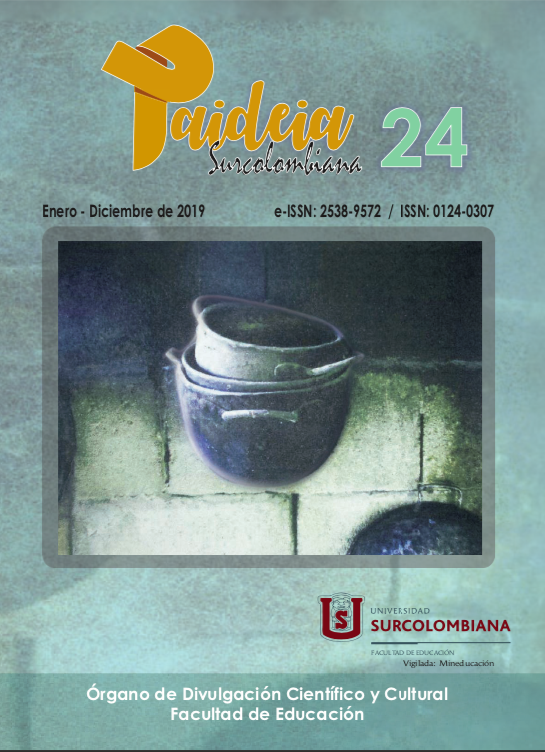Problem-Based Learning (ABP) as a strategy to strengthen scientific skills in natural sciences
##plugins.themes.bootstrap3.article.main##
The following research was based on the problem and the difficulties that students of fifth grade at Antonio Nariño school had in the Saber 5 Test in the Natural Science subject. The proposal was aimed at strengthening scientific competences through the problem-based learning teaching strategy (ABP), to strengthen the scientificcompetencies assessed by ICFES in the area. These competences are the comprehensive use of scientific knowledge, the explanation of phenomena and inquiry. The methodology that was used is the research action under the qualitative approach, a process whichwas carried out through the presentation of a diagnostic test, the results of which served as the basis for the planning of activities in teaching sequences, its implementation in the classroom through the didactic strategy of the (ABP) and the analysis of the results that led to a reflection that allowed to formulate new activities to improve the learning process. It was concluded that the scientific competencies evaluated by ICFES were strengthened by the ABP's didactic strategy, as it permitted studentsto develop scientific, critical and thoughtful thinking, namely,integral students, aimed at improving their quality of life and communities.
Downloads
##plugins.themes.bootstrap3.article.details##
Díaz Barriga, A. (2013). Guía para la elaboración de una secuencia didáctica. Obtenido de: http://bit.ly/2cOIhul
Feo, R. (2010). Orientaciones básicas para el diseño de estrategias didácticas. Revista Tendencias pedagógicas, 16, 220-236.
ICFES. (2012). Saber 5° y 9°. Cuadernillo de resultados de prueba Ciencias Naturales, 5° grado, Calendario B. Bogotá: MEN.
Instituto Tecnológico y de Estudios Superiores de Monterrey. (2005). El Aprendizaje Basado en Problemas como Técnica Didáctica. Dirección de Investigación y Desarrollo Educativo, Vicerrectoría Académica http://sitios.itesm.mx/va/dide2/tecnicas_didacticas/abp/abp.pdf
Latorre, A., (2005). La investigación-acción: conocer y cambiar la práctica educativa. 3a ed. Barcelona: Editorial Graó.
Ministerio de Educación Nacional. (2006). Estándares Básicos de Competencias en lenguaje, Matemáticas, Ciencias y Ciudadanas. Bogotá: MEN
Morales, P; Landa, V; (2004). APRENDIZAJE BASADO EN PROBLEMAS. Theoria, 13() 145-157. Recuperado de http://www.redalyc.org/articulo.oa?id=29901314
Proyecto Todos Aprender 2.0. (2017). Protocolo PTA: anexo: Instructivo insumo de apoyo plan de aula. Bogotá: MEN.
Quintanilla, M. (11, octubre, 2005). ¿Qué son las competencias científicas? Foro Educativo Nacional. Universidad Nacional de Colombia. Mensaje publicado en http://www.colombiaaprende.edu.co/html/mediateca/1607/articles-128237_archivo.pdf
Restrepo Gómez, B. (2005). Aprendizaje basado en problemas (ABP): una innovación didáctica para la enseñanza universitaria. Educación y Educadores, 8. (9-19) Universidad de la Sabana Facultad de Educación. Recuperado de: http://www.redalyc.org/pdf/834/83400803.pdf
Vizcarro, C. & Juárez, E. (2006). ¿Qué es y cómo funciona el aprendizaje basado en problemas? En La metodología del Aprendizaje Basado en Problemas. Universidad de Murcia. España. Recuperado de: http://www.ub.edu/dikasteia/LIBRO_MURCIA.pdf














